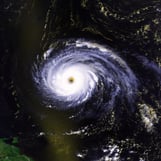Windage a very commonly misunderstood occurrence in an engine. With a good understanding of what it is you can negate its effects and improve the performance and longevity of your engine...
Windage & Your Motor.
What is windage?
Windage is defined as a force created on an object by friction when there is relative movement between air and the object. Windage in regards to an automotive engine describes the flow of air within the crankcase and the drag that it can cause on the crank. Consider that each time a piston comes down in the cylinder bore the air under it is pushed into the crank area and each time a piston goes up the air is being pulled behind it. At the same time the rotating assembly is spinning and churning the air and adding oil into the mix. This violent atmosphere of oil infused air can create a significant amount of drag on your engine.
How does windage affect an engine?

Windage can affect an engine in a few different ways. When unchecked, windage can cause oil pressure and oil temperature problems in addition to power loss.
At high RPMs the spinning crank can draw in and throw the oil draining from your engine back against the block similar to how a hurricane throws rain and debris around its center. This oil being splashed back against the block and into cylinder walls absorbs extra heat from all the additional contact with the bottom of the block. As a result engine oil temperatures increase.
Adding to the problem, the oil being spun and splashed around the crank tends to become aerated and can even experience a frothing effect. With air bubbles in your oil its ability to dissipate heat is reduced and the oil temperature issue is intensified. As these temperature and aeration issues accumulate they can gang up and have an effect on your oil pressure as well. The more aerated your oil becomes the more your oil pump will struggle to pump it. Combine this with your oil being particularly hot and thin and oil pressure starts to drop.
The third major issue created by windage is power loss. The thicker the atmosphere of air and oil is around the crank the more drag the crank will experience as it rotates through it. It can be hard to image, but the drag created by all this extra windage is not insignificant. Dyno testing shows again and again that it robs real horse power from the engine.
How do I prevent windage?
There are a few different ways to limit and prevent windage in an engine. The first is your oil level. Check out our blog on oil levels here. Secondly, there are oil pan features that can limit windage as well. These features include everything from crank scrapers, trap door baffles, windage trays etc.
For a guide to oil pan features and what they do see our "Oil Pan Feature Guide" below.

